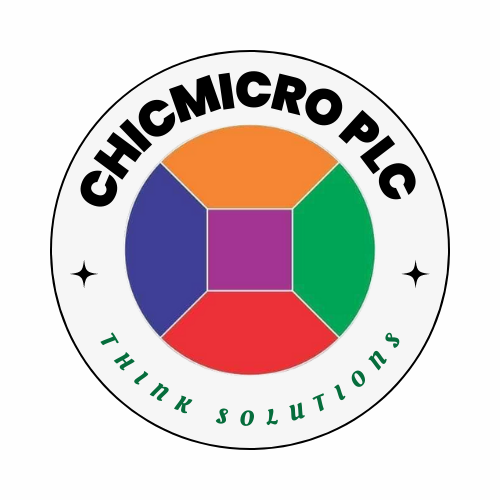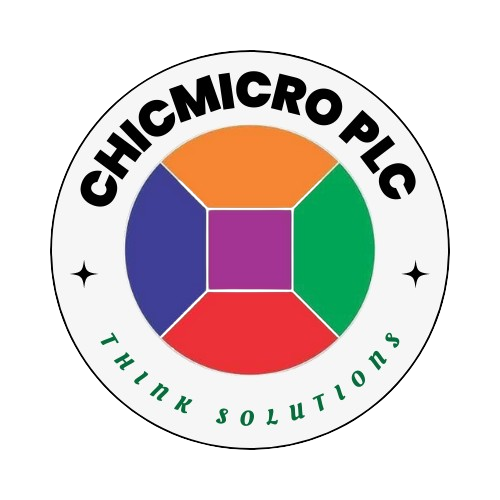Understanding Canada’s Immigration System
Canada’s immigration system is designed to facilitate the entry of individuals and families seeking new opportunities, whether it be for work, education, or reunification. As of 2025, there are several pathways through which potential immigrants can gain entry into Canada, with each pathway tailored to meet specific needs and circumstances. Understanding these pathways is essential for those considering a move to Canada.
One of the most prominent categories is economic immigration, which includes programs like the Express Entry system. This system assesses candidates based on factors such as age, education, work experience, and language proficiency, allowing skilled workers to gain permanent residency more efficiently. The Provincial Nominee Program (PNP) further complements this by allowing provinces and territories to nominate individuals for permanent residence, addressing local labor market demands.
Family sponsorship is another key component of Canada’s immigration framework. This allows Canadian citizens and permanent residents to sponsor their family members to join them in Canada. Key eligibility criteria include the sponsor’s citizenship or residency status, the relationship’s authenticity, and financial capacity to support the sponsored relatives without needing social assistance.
For individuals seeking refuge, Canada’s refugee resettlement program provides protection to those fleeing persecution and war. This program prioritizes vulnerable populations, and eligibility is determined through a rigorous assessment process. Furthermore, Canada offers student pathways, enabling international students to study at Canadian institutions while potentially gaining work experience, which can lead to permanent residency options upon graduation.
The Canadian immigration system is multifaceted, accommodating various socioeconomic backgrounds. It is imperative for prospective immigrants to comprehensively understand these options and the associated eligibility criteria, as this knowledge serves as a foundation for successful immigration planning to Canada.
Researching Immigration Programs and Requirements
Canada offers a variety of immigration programs designed to cater to different categories of immigrants, including skilled workers, family reunification, and refugees. Understanding these programs and their requirements is essential for potential immigrants to choose the most suitable path for immigration. The most notable programs include Express Entry, Provincial Nominee Programs (PNP), Family Sponsorship, and various humanitarian programs.
The Express Entry system is one of the most popular pathways for skilled workers. It utilizes a points-based system that assesses candidates based on factors such as age, education, work experience, and language proficiency. A minimum language proficiency level, demonstrated through standardized tests like IELTS or CELPIP, is a mandatory requirement. Furthermore, candidates must possess recognized educational credentials, usually assessed through the Educational Credential Assessment (ECA) process. Work experience is also crucial, as it not only contributes to a candidate’s Comprehensive Ranking System (CRS) score but is often a requirement of qualifying job offers.
Provincial Nominee Programs (PNP) allow provinces to nominate individuals based on local labor market needs. Each province has its own criteria, frequently including specific language and education benchmarks, and it may favor candidates with job offers in the region. For family sponsorship, Canadian citizens and permanent residents can sponsor relatives, providing another avenue for immigration, subject to various financial and legal obligations. For humanitarian considerations, refugees and protected persons can apply under distinct programs aimed at providing safety to those in vulnerable situations.
To efficiently assess which program aligns with one’s circumstances, aspiring immigrants should consider conducting a self-assessment based on their qualifications, language abilities, and financial situation. Online resources, workshops, and consultations with immigration professionals can further assist in this process, ensuring candidates have a clear understanding of which program best suits their goals and background.
Preparing Essential Documents
Immigrating to Canada requires meticulous preparation, particularly when it comes to essential documents. Having the correct paperwork ready can significantly streamline the application process and bolster the chances of a successful immigration outcome. The list of required documents typically includes identification, educational certificates, proof of work experience, and language proficiency test results. Each of these components plays a critical role in your immigration application.
First and foremost, identification documents such as government-issued identification cards, passports, and birth certificates are essential. These documents verify your identity and establish your legal status. Ensure that these documents are up-to-date and, if necessary, obtain certified copies through the appropriate government offices.
Next, educational certificates are crucial as they reflect your qualifications. You may need to have your foreign educational credentials assessed by a designated organization to ensure they meet Canada’s educational standards. This assessment helps validate your qualifications and provides a comparable evaluation for Canadian authorities. Gathering transcripts and diplomas in advance can expedite this part of the process.
Proof of work experience is another critical requirement. Documentation such as letters of reference from former employers, pay stubs, and tax forms can substantiate your work history. It’s vital that these documents include details about your job title, responsibilities, and duration of employment to provide a comprehensive overview of your professional experience.
Lastly, language proficiency test results are mandatory for most immigration pathways. Tests like the IELTS or CELPIP assess your proficiency in English or French, which is a significant factor in the immigration process. Preparing and registering for these tests should be done well in advance to ensure you receive results in time for your application.
By thoroughly preparing and certifying these essential documents, you are positioning yourself for a smoother immigration process to Canada. It is advisable to consult with immigration professionals if you have questions regarding specific requirements or best practices in document preparation.
Navigating the Application Process
The immigration application process to Canada can appear daunting; however, with a structured approach, it becomes manageable. Firstly, it is essential to identify the appropriate immigration program based on your qualifications and goals. Canada offers numerous pathways, including Express Entry, family sponsorship, and provincial nominee programs, each with specific criteria. Once you have determined the best route for your situation, the next step involves gathering necessary documentation, such as proof of identity, educational credentials, and work experience.
Applicants have the option to submit their application online through the Immigration, Refugees and Citizenship Canada (IRCC) website or via paper applications. Online submissions are often recommended due to their efficiency and the ability to track your application’s status in real time. Electronic applications tend to process more swiftly, while paper applications may take longer due to postal delays. Regardless of the chosen method, ensuring that the application is complete and accurate is crucial to avoid delays or rejections.
Application fees are another important consideration. Each immigration program has its own fee structure, which must be paid at the time of submission. These fees can vary significantly depending on factors such as the number of family members included in the application. It is advisable to check the latest fee schedule on the IRCC website to ensure compliance.
After submission, applicants can expect to wait several months for a decision, depending on the program. During this waiting period, it is vital to maintain legal status in Canada if you are already residing in the country. This might involve extending a temporary visa or applying for a study or work permit. Understanding your rights and responsibilities during this time can ease the process and ensure a smoother transition upon receiving an immigration decision.
Medical and Security Checks
As part of the immigration process to Canada in 2025, all applicants are required to undergo medical examinations and security checks. These protocols serve to protect public health and ensure the safety of Canadian citizens. The Canadian government mandates these checks to assess the immigrants’ health status and potential security risks.
The medical examination typically involves a visit to an approved panel physician. During this examination, the physician will evaluate overall health, check for communicable diseases, and may conduct additional tests as deemed necessary. Immunization records will also be reviewed, and certain vaccines may be required, including those for measles, mumps, rubella, and flu, among others. It is advisable for applicants to have their vaccination records on hand, as these will expedite the process and demonstrate compliance with Canada’s health requirements.
In addition to medical evaluations, security checks are an integral part of the immigration process. These checks consist of background investigations designed to identify any criminal history or security threats. Applicants may be required to provide police clearance certificates from all countries where they have lived for six months or more since the age of 18. This aspect of the process aims to ensure that future residents will not pose a risk to the safety and security of the Canadian population.
To prepare for both medical and security checks, prospective immigrants should ensure all relevant documents and certificates are organized, including passports, vaccination records, and evidence of clean background history. Beginning this preparation early will facilitate a smoother application process and minimize stress. By understanding and completing these necessary checks, immigrants can help expedite their transition to Canada and contribute positively to Canadian society.
Understanding the Interview Process
When contemplating immigration to Canada in 2025, it is crucial to understand the role of the interview process in your application journey. While not every applicant will be required to attend an interview, certain circumstances may prompt immigration authorities to request one. This could be due to the complexity of your application, discrepancies in provided information, or the need for further clarification regarding your intentions in Canada.
Should an interview be part of your application process, it is essential to know what types of questions you might encounter. These inquiries typically aim to gauge the authenticity of your application, your reasons for immigrating, and your understanding of Canadian culture and values. Expect questions regarding your background, family ties in Canada, and your plans for employment or education upon arrival. Being prepared for these questions can significantly impact the outcome of your interview.
Preparation is key to presenting yourself effectively during the interview. Start by gathering all relevant documents, such as identification, financial statements, proof of employment, and any supporting letters or references. Organizing these materials beforehand will allow you to respond to questions confidently. In addition, dress appropriately to reflect professionalism and care, as first impressions can play an important role in the interview process.
Moreover, practice your responses to common interview questions with friends or family to enhance your comfort level. Consider using resources available online that simulate immigration interview scenarios. Finally, during the interview, maintain eye contact, demonstrate active listening, and answer questions honestly. With thorough preparation, you can navigate the interview process confidently, ensuring a smoother path toward your goal of immigrating to Canada.
Awaiting Decision and Next Steps
Once you have submitted your application to immigrate to Canada, it is important to understand the subsequent stages, specifically regarding processing timelines and monitoring your application’s status. The waiting period can vary significantly depending on the type of immigration program through which you are applying, the volume of applications, and individual circumstances. Generally, you may expect a processing time that ranges from a few months up to several years.
The Government of Canada provides tools to check the status of your application online. By accessing the Immigration, Refugees, and Citizenship Canada (IRCC) website, you can securely log in using your credentials and receive updates regarding your application status. Regularly checking your application status is advisable, as it helps you remain informed about any additional documents or information that may be required to proceed further.
In the event that you receive an approval notice, congratulations are in order—this is a significant milestone on your journey. The next step will typically involve receiving a Confirmation of Permanent Residence (COPR) document, followed by instructions on how to finalize your settlement arrangements in Canada. Conversely, if your application is denied, it can be disappointing, yet options for recourse are available. You will generally receive a letter outlining reasons for the denial, which can guide your subsequent actions.
You may either choose to appeal the decision by submitting an application to the Immigration Appeal Division (IAD) within the prescribed timeframe or consider correcting any issues found in the initial application and reapply. Reviewing the specific reasons for denial will be crucial in strengthening future applications. Engaging with professionals qualified in immigration law can provide valuable insights into effectively navigating this process.
Preparing for Your Move to Canada
Relocating to Canada is a significant undertaking that requires careful preparation and awareness of various factors that will influence your transition. One of the first steps in this process is finding suitable housing. Depending on your destination city, you may need to explore different neighborhoods to determine which area best fits your lifestyle, budget, and proximity to work or amenities. Online platforms and local rental agencies can provide you with valuable insights into housing availability, rental costs, and community demographics.
Equally important is understanding the local job market. Before your move, it is prudent to research potential employers, the demand for your skills, and the overall economic landscape of your intended city. Utilize networking platforms such as LinkedIn to connect with professionals in your field and join local job boards that cater to immigrants. Additionally, consider applying for jobs prior to your move to enhance your chances of securing employment quickly after your arrival in Canada.
Familiarizing yourself with Canadian culture and legal systems is vital to ensure a smooth transition. Canada is known for its multicultural society, where respect for diversity is a cornerstone of social interaction. Engaging with local communities, attending cultural events, and learning about the country’s history can significantly enrich your experience in Canada. Furthermore, understanding the legal requirements for residency, work permits, and healthcare access will help you navigate the bureaucratic landscape effectively. Each province may have specific regulations, so it is advisable to consult the official government websites for accurate information.
Lastly, settling into your new life in Canada involves building a support network and establishing a routine. Consider joining local organizations or clubs that align with your interests to connect with others in your community. Approaching your move with an open mind and a willingness to adapt will facilitate a successful integration into your new Canadian life.
Building a Life in Canada: Integration and Community
Transitioning to a new country can be a challenging yet rewarding experience, particularly for newcomers aiming to establish a life in Canada. Integration into Canadian society is crucial for building a cohesive, fulfilling, and prosperous future. The process of becoming an integral part of the community involves not only adapting to the local culture but also connecting with others who share similar experiences.
One of the primary resources available for newcomers is language classes. Proficiency in English or French is essential for effective communication in both personal and professional contexts. Various organizations, including local community centers and nonprofit associations, offer free or low-cost language training programs designed to enhance verbal skills and boost confidence in everyday interactions. Engaging in these classes not only helps improve language skills but also creates opportunities to meet other immigrants, facilitating the formation of networks.
Community centers play a pivotal role in promoting social engagement among newcomers. These centers often provide a variety of resources, including job training programs, legal assistance, and cultural activities tailored for newcomers. Participating in workshops, volunteer opportunities, and social events hosted by these centers is a great way to connect with locals and foster a sense of belonging within the community.
Networking opportunities abound in Canada, and actively seeking these out can significantly enhance one’s integration experience. Attending events, conferences, and cultural festivals allows newcomers to immerse themselves in local traditions and customs. Furthermore, these gatherings can lead to professional connections that may aid in job placement or advancement in one’s career journey. Involvement in volunteer work offers invaluable insights into Canadian values and societal norms, contributing to a well-rounded integration experience.
Overall, embracing the resources available and fostering connections with local communities and fellow newcomers is essential for a successful transition into life in Canada. Each individual’s commitment to integration enriches not only their own journey but also the multicultural tapestry that defines Canada as a welcoming nation.



